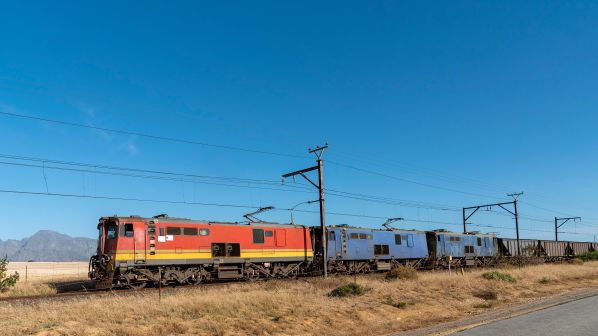SOUTH Africa is looking to open the core railway network to third-party freight operators and grow the railway sector as a means of stimulating economic recovery from the Covid-19 pandemic.
South African minister public enterprises, Mr Pravin Gordhan, told the Africa Rail Industry Association (ARIA) AGM on March 31 that introducing competition by allowing access to private operators is expected to improve the viability and sustainability of the country’s rail sector.
Gordhan said this would provide a number of benefits, including:
- improving utilisation of the network and thus increasing rail efficiency
- reducing network unit costs by involving more operators
- increasing revenue to contribute to investment in the maintenance and modernisation of the network, and
- reduce the external costs of freight logistics and improve the competitiveness of rail as a more environmentally friendly mode of transport.
The plans were first introduced last year by South African president, Mr Cyril Ramaphosa, during the announcement of the Economic Reconstruction and Recovery Plan, which featured a number of key structural reforms to revitalise the South African economy. The plans also included the establishment of a Rail Economic Regulator.
State-owned freight railway Transnet is in the process of separating its operation and infrastructure divisions. Gordhan says this is expected to take around 18 months, with third-party access expected to be introduced within three years.
The plans come at an important time for rail in South Africa, where both freight and passenger numbers were dropping even before the start of the pandemic.
ARIA chairperson, Mr James Holley, told the live-streamed AGM that Transnet’s annual freight volumes dropped from 226 million tonnes in the year to March 2019 to 212 million tonnes in the year to March 2020. Holley added that there were concerns in the industry of a further significant drop in freight volumes in the year to March 2021 due to the impact of the pandemic, amongst other factors.
Passenger volumes have also declined significantly, dropping from 645 million passenger journeys in 2008-09 to 208 million for the year ending in June 2019, before dropping further to 140 million for the year ending in June 2020. Holley says this was due to the pandemic as well as vandalism of the Passenger Rail South Africa (Prasa) network during the Covid-19 lockdown.
The rail structural reform proposed by the government was “immense and exciting,” Holley says.
ARIA has initiated a study into the practical implementation of third-party access to the core rail network in order to ensure private industry can play its part in achieving the successful implementation of the structural reform.
“The initial feedback from our study has been encouraging,” Holley says. “The freight volumes that could be brought to rail and the corresponding access fees generated as a consequence are significant and at present, our advice is that no additional regulation or legislation is required for implementation. Importantly this reform requires zero privatisation, as Transnet and Prasa remain the owners of the track infrastructure and remain operators as they are today, and zero contribution from the Fiscus [national budget].
“The impact would be tens of billions of Rand of investment into South Africa in rolling stock alone, and ultimately, more rail volumes and a bigger pie. So, while 2020 may have brought some of the darkest days in the long history of our industry, the horizon just may have never been brighter.”
An in-depth review on developing rail in Africa will feature in the July issue of IRJ.

